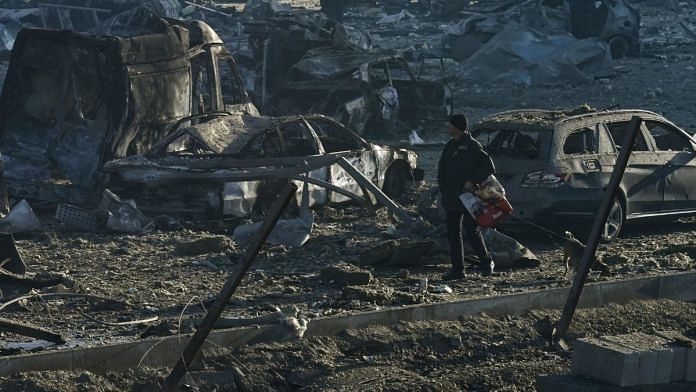The Russia-Ukraine war, if viewed in its own right, despite all its chaos and destruction, has been a reasonably uncluttered event—a belligerent nation invading its neighbour. The broader implications this battle puts into perspective, nonetheless, are of several other international events that have been instrumental in the swiftly shifting sequence of events that the world has witnessed lately. These developments, though consecutive, are by no means linear. They involve several parties involved in separate incidents and under differing situations in varying degrees.
Few international events have been able to so profoundly derange our world as much as this war has done. New alliances taking shape, old ones breaking, neutral nations taking sides, proxy wars, refugee crises—this war has shown us everything. With the historically neutral Finland and Sweden applying to join NATO, the prime reason Putin gave for invading Ukraine —NATO’s eastward expansion—has backfired on nations becoming even more overt in opposing Russia. The subversion of Russia to China is now complete and even more so, noticeable, further consolidating China’s position as a contender for the status of superpower. This war has forced almost every nation’s foreign policy into a review mode, each grappling to comprehend and react according to their position and perception of their national interests.
The other conflicts
Since its birth in 1948, the state of Israel has been in continual conflict with its Arab neighbours. An ever-existing dilemma for the US, the policymakers there would’ve taken a sigh of relief in August 2020 with the signing of the Abraham Accords, which marked the normalisation of relations between Israel, UAE and Bahrain. This ‘normalisation’ between Israel and the Arab nations too was an ongoing process, with Egypt and Jordan already having diplomatic relations with Israel This is significant because of the fact that gradually, the long epoch of hostility between Arabs and Israel seems to be finally coming to an end. There is even news of back-channel talks between Saudi Arabia and Israel, but it remains to witness how durable these bridges built over the shifting sands of diplomacy shall prove.
Kabul fell to the Taliban on 15 August 2021. This event was an enormous setback for US hegemony which was already facing ever-growing challenges from an emerging China keen on projecting its world power. Despite its apprehensions about the Taliban regarding Uyghurs, China was among the very few nations that maintained their embassy in Afghanistan after the American withdrawal. Apart from the unease of dealing with another potentially hostile state, a broader significance of this crisis for the world stems from the emerging China-Russia-Pakistan nexus as became apparent in Afghanistan and the ramifications this new bonhomie shall have.
Deng Xiaoping’s dictum was “Hide Your Strength, Bide Your Time.” About four decades have passed, and China already has left behind the days of hiding its strength; if anything, today’s China confidently projects its strengths across all continents. The strategic implications of this increasing capability are reflected more and more in not only the challenge that China presents to the US as a superpower but also in the assertiveness it displays in its numerous border disputes, which China has with each one of its neighbours. The fact that Russia and China both see a common enemy in the US manifests in the renewed prospering of the two nations’ friendliness. As such, the global balance of power is increasingly more likely to shift to the Asian continent, with India not being too far from the action.
What these and other such developments amount to would be an intriguing spectacle. The international world order is rapidly transforming, faster than it ever did in the history of the modern world. With almost every nation looking for new partners while also reviewing its relations with old friends, the already uncertain world of foreign policy has become strikingly eccentric; there is never an end of history, and never was this more apparent than at present.
The author is a student at Guru Nanak Dev Engineering College, Ludhiana.




